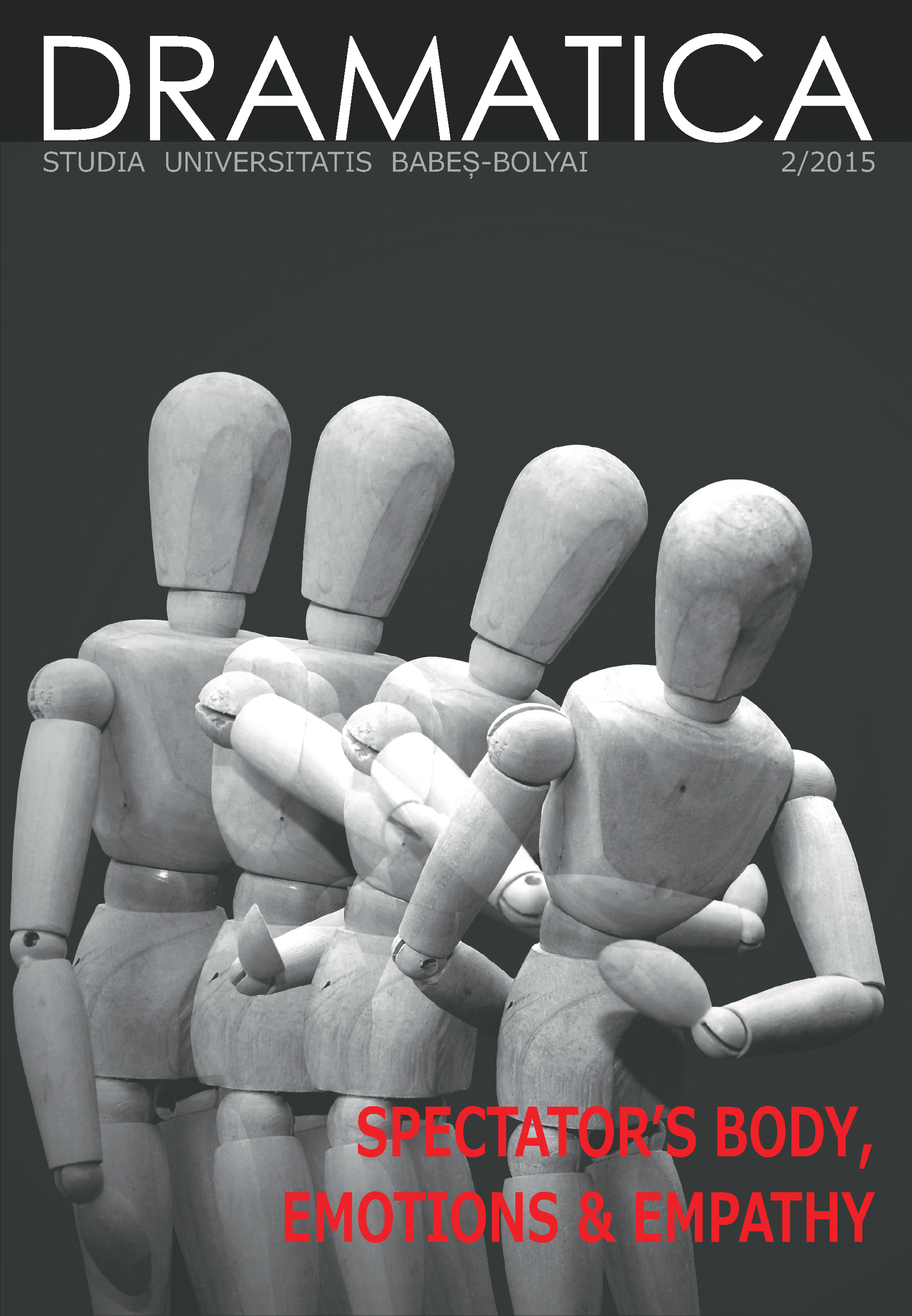Alternative Theatre in Poland and the Communist Dystopia
Keywords:
alternative theatre, communism, dystopia, ethics, Poland, social changeAbstract
Theatre as a means of social debate and commentary has always reacted to the political context of its time. One of the exemplary artistic movements of the kind is the Polish alternative theatre during communism. In communist Poland there were several groups, companies and alternative theatres that were more focused on the contents of their performances and on ethical values, rather than on aesthetic and artistic values. This means that the concern for theatre aesthetics was shifted towards theatre as a vehicle for ethical questions and problems, as well as one for social and moral change. The groups that were known for their political performances were, among others: Ósmego Dnia, Provisorium, Teatr STU, Teatr 77, Teatr Kalambur and Pstrąg. From Studencki Teatr Satyryków to Pomarańczowa Alternatywa, political theatre groups had always dealt with the ethical aspects of Poland’s social reality. My paper aims to present the way the communist dystopia influenced and was reflected in the performances of some of the alternative theatre groups that came into existence in communist Poland between 1954 (the year when alternative theatre was born in the Polish community) and 1989 (the year that marks the fall of communism in Poland).References
BRAUN, Kazimierz, A History of Polish Theater, 1939-1989: Spheres of Captivity and Freedom, Greenwood Press, Westport, 1996;
CIOFFI, Kathleen M., Alternative Theatre in Poland (1954-1989), Harwood Academic Publishers, s.l., 1996;
GOLDFARB, Jeffrey C., The Persistence of Freedon: The Sociological Implications of Polish Student Theater, A Westview Replica Edition, Westview Press, Boulder, Colorado, 1980;
GORDIN, Michael D.; Tilley, Helen; Prakash, Gyan, Utopia/Dystopia: Conditions of Historical Possibility, Princeton University Press, Princeton, NJ, 2010 (Questia);
HÜBNER, Zygmunt, Theater and Politics, Northwestern University Press, Chicago, 1992;
KORNAŚ, Tadeusz, Between Anthropology and Politics – Two Strands of Polish Alternative Theatre, translated into English by Caryl Swift, revised and edited by Virginia Preston, editor Katarzyna Szustow, published by Instytut Teatralny im. Zbigniewa Raszewskiego, Warsaw, 2007;
KOSTRZEWA-ZORBAS, Grzegorz, Teatr Ósmego Dnia – 1981 „More than One Life“. A collective creation under the direction of Lech Raczak with the company’s proper texts and a poem „Waltz“ by Czesław Miłosz. Music by Lech Jankowski, in Le Théâtre en Pologne/ Theatre in Poland, issue 1/1982, Warsaw;
K., J. A Jubilee of the Studencki Teatr Satyryków, in Le Théâtre en Pologne/Theatre in Poland, issue 1/1964, Warsaw;
MANNHEIM, Karl, Ideology and Utopia: An Introduction to the Sociology of Knowledge, Routlege & Kegan Paul, London, 1936 (Questia);
NIŻYŃSKA, Alexandra, Street art jako alternatywa forma debaty publicznej w przestrezeni miejskiej (Street Art as an Alternative Form of Public Debate in the Urban Space – consulted in Polish), Trio Warszawa, 2011;
NYCZEK, Tadeusz, s. t., in Student, nr. 12/1971, apud ***, Teatr Ósmego Dnia, Ośrodek KARTA, Dom Spotkań z Historią, AGORA SA, Varșovia, 2009, p. 209;
TYSZKA, Juliusz, Student Theatre in Poland: Vehicles of Revolt, 1954–57 and 1968–71, în New Theatre Quarterly (2010), vol. 26, nr. 2, Cambridge University Press 2010;
WANDYCZ, Piotr S., Prețul libertății – O istorie a Europei central-răsăritene din Evul Mediu până în prezent (The Price of Freedom – A History of Central-Eastern Europe from the Middle Ages to the Present – consulted in Romanian), translated into Romanian by PARASCHIVESCU Mihaela and DRAGU-BANU Valentin, ALL Publishing House, 1998.
Downloads
Published
How to Cite
Issue
Section
License
Copyright (c) 2015 Studia Universitatis Babeș-Bolyai Dramatica

This work is licensed under a Creative Commons Attribution-NonCommercial-NoDerivatives 4.0 International License.


